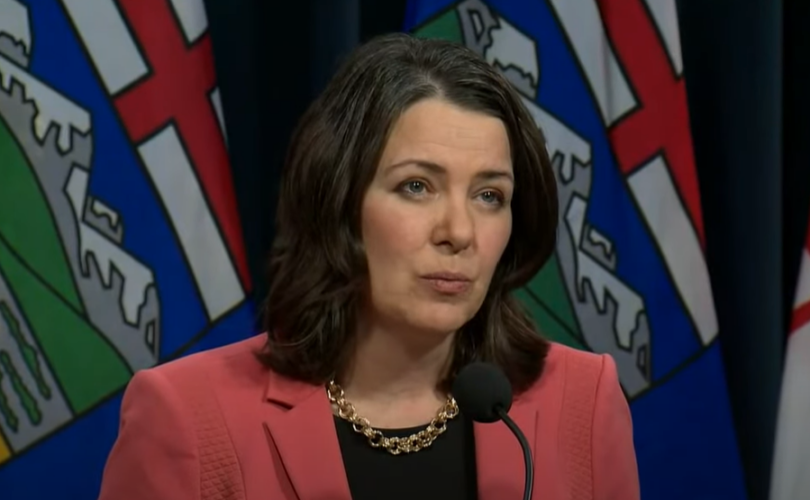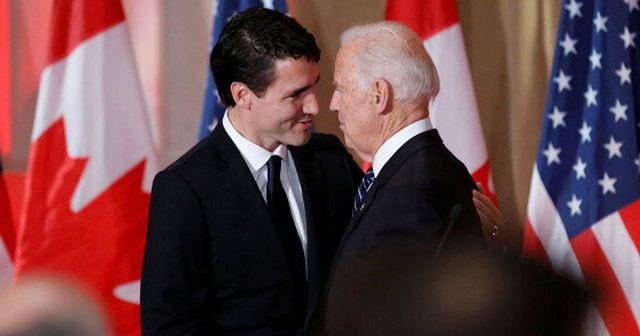Energy
Trudeau’s climate chief threatens Saskatchewan’s Scott Moe for refusing to collect carbon tax

From LifeSiteNews
Moe, however, has refused to be intimidated by Guilbeault’s threats, telling media this week that the carbon tax “is driving inflation and we still are paying a good chunk in other areas and the position from the government of Saskatchewan’s perspective hasn’t changed nor will it change. It should be removed on all products for all.”
Trudeau’s Liberal Environment Minister Steven Guilbeault has threatened to take “measures” against the premier of Saskatchewan for refusing to collect the federal carbon tax on home heating in his province.
On March 4, Guilbeault condemned Saskatchewan Premier Scott Moe’s decision not to collect the carbon tax on home heating in the western province. Moe’s decision came after Prime Minister Justin Trudeau’s government gave a carbon tax exemption on home heating oil, a break that almost exclusively benefits the Liberal voting Atlantic provinces.
“If Premier Scott Moe decides that he wants to start breaking laws and not respecting federal laws, then measures will have to be taken,” Guilbeault told reporters Monday.
“We can’t let that happen. What if somebody tomorrow decides that they don’t want to respect other federal laws, criminal laws? What would happen then if a prime minister, a premier of a province, would want to do that?” he questioned, apparently forgetting his own criminal history.
“It’s irresponsible and it’s frankly immoral on his part,” Guilbeault continued. “We can have disagreements about things like climate change, but to be so reckless is unspeakable, really.”
Beginning January 1, Saskatchewan stopped collecting the carbon tax on electric and natural gas home heating, a move which has already been shown to have lowered the province’s inflation rate.
Moe made the announcement in October after Trudeau suspended his carbon tax on home heating oil, which is almost exclusively used in Atlantic Canada to heat homes, and not in his province.
“I cannot accept the federal government giving an affordability break to people in one part of Canada but not here,” Moe said in a video posted on X at the time.
Moe promised that if the Trudeau government did not provide the exemption provided to Atlantic Canada to the rest of the nation, he would tell SaskEnergy, the province’s Crown corporation that provides energy to all residents, to stop collecting the carbon tax on natural gas. This, Moe said, would effectively provide “Saskatchewan residents with the very same exemption that the federal government has given heating oil in Atlantic Canada.”
Moe’s government has gone as far as introducing legislation to back the scrapping of the federal carbon tax on natural gas. The legislation will shield all executives at SaskEnergy from being jailed or fined by the federal government if they stop collecting the tax.
Despite the popularity and seeming fairness of Moe’s decision, Trudeau’s Liberal government has refused to rule out jail time for Moe if he refuses to collect the carbon tax on home heating.
Moe, however, has refused to be intimidated by Guilbeault’s threats, telling media this week that the carbon tax “is driving inflation and we still are paying a good chunk in other areas and the position from the government of Saskatchewan’s perspective hasn’t changed nor will it change. It should be removed on all products for all.”
Additionally, Conservative leader Pierre Poilievre pointed out that while Guilbeault challenges Moe for breaking the law by refusing to collect the carbon tax, Guilbeault himself has a history of breaking the law.
“Guilbeault calls out Saskatchewan’s lawlessness for refusing to collect his carbon tax,” Poilievre posted on X with a photo of Guilbeault being arrested in 2001.
Guilbeault calls out Saskatchewan's lawlessness for refusing to collect his carbon tax. pic.twitter.com/p3PnwyHzWr
— Pierre Poilievre (@PierrePoilievre) March 6, 2024
While a current member of the Trudeau government cabinet, Guilbeault has a history of taking extreme action in the name of the climate.
In 1997, he joined Greenpeace and served for a time as a director and then campaign manager of its Quebec chapter for about 10 years.
He was arrested many times for environmental protests, the most famous arrest coming after an incident in 2001 when he climbed Toronto’s CN Tower with British activist Chris Holden. The pair hung a banner saying “Canada and Bush — Climate Killers.”
Greenpeace is a group that advocates for population control in addition to calling for an end to all oil and gas use.
Last month, Guilbeault was publicly ridiculed after he said the federal government would no longer fund any road construction projects and instead funnel the savings to “climate change” projects that promote walking instead of driving.
However, Guilbeault’s push for “climate change” regulations are consistent with those of Trudeau. Since taking office in 2015, Trudeau has continued to push a radical environmental agenda like the agendas being pushed the World Economic Forum’s “Great Reset” and the United Nations’ “Sustainable Development Goals.”
The reduction and eventual elimination of the use of so-called “fossil fuels” and a transition to unreliable “green” energy has also been pushed by the World Economic Forum – the globalist group behind the socialist “Great Reset” agenda – an organization in which Trudeau and some of his cabinet are involved.
The reality of Trudeau’s push for so-called renewable energy showed itself just over a month ago after Alberta’s power grid faced near certain collapse due to a failure of wind and solar power. Many called out the Trudeau government’s green energy agenda that is attempting to phase out carbon-based power in favor of “renewables” as the reason for the near failure.
Energy
U.S. EPA Unveils Carbon Dioxide Regulations That Could End Coal and Natural Gas Power Generation
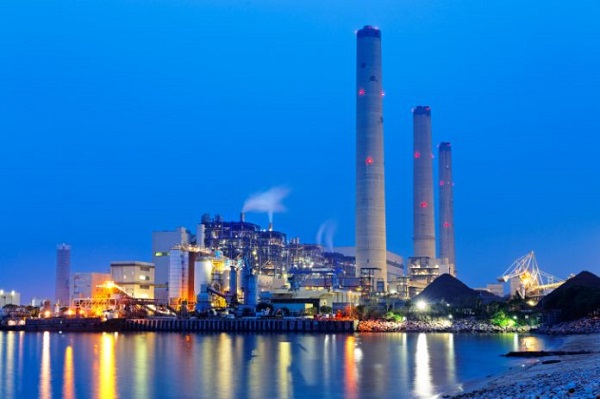
From Heartland Daily News
By ![]() Tim Benson
Tim Benson
The U.S. Environmental Protection Agency (EPA) announced new regulations on April 25 that would force coal-fired power plants to reduce or capture 90 percent of their carbon dioxide emissions by 2039, one year earlier than in the rule originally proposed in May 2023.
Other newly announced coal regulations include a final rule “strengthening and updating the Mercury and Air Toxics Standards (MATS) for coal-fired power plants, tightening the emissions standard for toxic metals by 67 percent, finalizing a 70 percent reduction in the emissions standard for mercury from existing lignite-fired sources,” and another rule to “reduce pollutants discharged through wastewater from coal-fired power plants by more than 660 million pounds per year.” The EPA also issued an additional rule to require the safe management of coal ash in locations not previously covered by federal regulations.
“Today, EPA is proud to make good on the Biden-Harris administration’s vision to tackle climate change and to protect all communities from pollution in our air, water, and in our neighborhoods,” said EPA Administrator Michael S. Regan. “By developing these standards in a clear, transparent, inclusive manner, EPA is cutting pollution while ensuring that power companies can make smart investments and continue to deliver reliable electricity for all Americans.”
EPA estimates its new regulations will reduce carbon dioxide emissions by 1.38 billion metric tons by 2047 and create $370 billion in “climate and public health net benefits” over the next twenty years.
Coal in a Regulatory Decline
Partially due to increasingly stringent regulations, electricity generation from coal has fallen from 52 percent of the nation’s total output in the 1990s to just 16.2 percent in 2023. Critics of the new regulations, including Jason Isaac, CEO of the American Energy Institute, argue that EPA’s new rules would make it impossible to open new coal plants and will effectively force those already online to shut down operations.
“These rules are a direct attack on an important and necessary source of American energy—one of our most affordable, reliable resources, and one that is essential here and growing in use around the world,” said Isaac. “The ignorance of this administration is negligent at best, criminal at worst, relegating the least among us to more expensive energy, or even none at all, as millions of Americans are finding out by having their electricity disconnected.
“On one hand they push to electrify everything and then with the other leave us with unreliable electricity,” Isaac said. “The Biden administration is hell bent on destroying coal and reaching new levels of recklessness.”
‘De Facto Ban’ on Coal
The new regulations almost assuredly will face legal challenges from the coal industry and others, says Steve Milloy, founder of JunkScience.com.
“Another unconstitutional EPA rule from the Biden regime that will be DOA at [the Supreme Court] but not until much harm has been caused,” said Milloy. “Congress has not authorized EPA to issue regulations that operate as a de facto ban on coal plants, yet that’s what this regulation amounts to because it mandates emissions control technology (i.e., carbon capture and sequestration) which does not, and will never, exist for coal plants.”
EPA, by contrast, says carbon capture and sequestration (CCS) is the “best system of emission reduction for the longest-running existing coal units” and a “cost-reasonable emission control technology that can be applied directly to power plants and can reduce 90 percent of carbon dioxide emissions from the plants.”
“The requirement for imaginary technology violates Clean Air Act notions of only requiring the best available and adequately tested technology,” Milloy said. “The de facto ban violates the 2022 [Supreme Court] decision in West Virginia v. EPA, which established the major questions doctrine, under which agencies cannot undertake significant new actions, like banning coal plants, without authorization from Congress.”
Natural Gas Targeted, Too
Coal plants were not the only target of new EPA regulations, as natural gas power plants are also now required to eliminate or capture 90 percent of their carbon dioxide emissions by 2032, three years earlier than called for when the draft rule was originally proposed in 2023.
The EPA is acting as if it has absolute power unconstrained by the law and prior court rulings, Darren Bakst, director of the Competitive Enterprise Institute’s Center on Energy & Environment, says in a press release.
“The [EPA] absurdly thinks its authority to regulate means it has the authority to shut down businesses,” said Bakst. “Establishing new regulations for power plants does not mean the agency can effectively force them out of business.
“This is Clean Power Plan Part II, but like with many sequels, it is worse,” Bakst said.
Tim Benson ([email protected]) is a senior policy analyst with Heartland Impact.
For more on the Biden administrations power regulations, click here.
Alberta
Game changer: Trans Mountain pipeline expansion complete and starting to flow Canada’s oil to the world
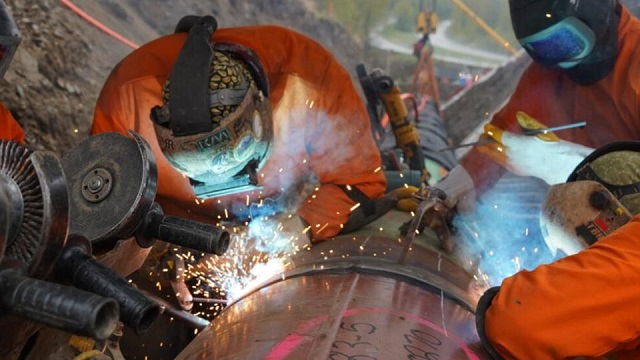
Workers complete the “golden weld” of the Trans Mountain pipeline expansion on April 11, 2024 in the Fraser Valley between Hope and Chilliwack, B.C. The project saw mechanical completion on April 30, 2024. Photo courtesy Trans Mountain Corporation
From the Canadian Energy Centre
By Will Gibson
‘We’re going to be moving into a market where buyers are going to be competing to buy Canadian oil’
It is a game changer for Canada that will have ripple effects around the world.
The Trans Mountain pipeline expansion is now complete. And for the first time, global customers can access large volumes of Canadian oil, with the benefits flowing to Canada’s economy and Indigenous communities.
“We’re going to be moving into a market where buyers are going to be competing to buy Canadian oil,” BMO Capital Markets director Randy Ollenberger said recently, adding this is expected to result in a better price for Canadian oil relative to other global benchmarks.
The long-awaited expansion nearly triples capacity on the Trans Mountain system from Edmonton to the West Coast to approximately 890,000 barrels per day. Customers for the first shipments include refiners in China, California and India, according to media reports.
Shippers include all six members of the Pathways Alliance, a group of companies representing 95 per cent of oil sands production that together plan to reduce emissions from operations by 22 megatonnes by 2030 on the way to net zero by 2050.
The first tanker shipment from Trans Mountain’s expanded Westridge Marine Terminal is expected later in May.
 Photo courtesy Trans Mountain Corporation
Photo courtesy Trans Mountain Corporation
The new capacity on the Trans Mountain system comes as demand for Canadian oil from markets outside the United States is on the rise.
According to the Canada Energy Regulator, exports to destinations beyond the U.S. have averaged a record 267,000 barrels per day so far this year, up from about 130,000 barrels per day in 2020 and 33,000 barrels per day in 2017.
“Oil demand globally continues to go up,” said Phil Skolnick, New York-based oil market analyst with Eight Capital.
“Both India and China are looking to add millions of barrels a day of refining capacity through 2030.”
In India, refining demand will increase mainly for so-called medium and heavy oil like what is produced in Canada, he said.
“That’s where TMX is the opportunity for Canada, because that’s the route to get to India.”
Led by India and China, oil demand in the Asia-Pacific region is projected to increase from 36 million barrels per day in 2022 to 52 million barrels per day in 2050, according to the U.S. Energy Information Administration.
More oil coming from Canada will shake up markets for similar world oil streams including from Russia, Ecuador, and Iraq, according to analysts with Rystad Energy and Argus Media.
Expanded exports are expected to improve pricing for Canadian heavy oil, which “have been depressed for many years” in part due to pipeline shortages, according to TD Economics.
 Photo courtesy Trans Mountain Corporation
Photo courtesy Trans Mountain Corporation
In recent years, the price for oil benchmark Western Canadian Select (WCS) has hovered between $18-$20 lower than West Texas Intermediate (WTI) “to reflect these hurdles,” analyst Marc Ercolao wrote in March.
“That spread should narrow as a result of the Trans Mountain completion,” he wrote.
“Looking forward, WCS prices could conservatively close the spread by $3–4/barrel later this year, which will incentivize production and support industry profitability.”
Canada’s Parliamentary Budget Office has said that an increase of US$5 per barrel for Canadian heavy oil would add $6 billion to Canada’s economy over the course of one year.
The Trans Mountain Expansion will leave a lasting economic legacy, according to an impact assessment conducted by Ernst & Young in March 2023.
In addition to $4.9 billion in contracts with Indigenous businesses during construction, the project leaves behind more than $650 million in benefit agreements and $1.2 billion in skills training with Indigenous communities.
Ernst & Young found that between 2024 and 2043, the expanded Trans Mountain system will pay $3.7 billion in wages, generate $9.2 billion in GDP, and pay $2.8 billion in government taxes.
-

 COVID-192 days ago
COVID-192 days agoCOVID Is Over — But Did We Learn Anything From It?
-

 Energy2 days ago
Energy2 days agoU.S. EPA Unveils Carbon Dioxide Regulations That Could End Coal and Natural Gas Power Generation
-

 John Stossel2 days ago
John Stossel2 days agoThe Swamp Survived: Why Trump Failed to “Drain the Swamp”
-

 conflict2 days ago
conflict2 days ago‘Got Played’: Israel Reportedly Suspicious Biden Admin Had Backroom Talks With Mediators Over Ceasefire Deal
-
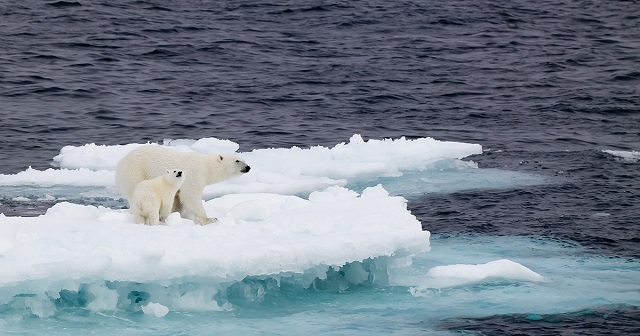
 Environment2 days ago
Environment2 days agoScientific Report Pours Cold Water On Major Talking Point Of Climate Activists
-

 conflict2 days ago
conflict2 days agoAmerica Is Really Bad At Foreign Interventions. Why Does Biden Think Ukraine Will Be Any Different?
-

 Opinion1 day ago
Opinion1 day agoBoy Scouts of America changes name to ‘Scouting America’ to be ‘more inclusive’
-
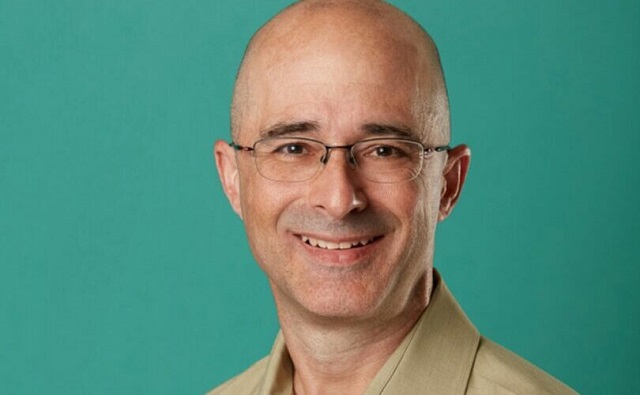
 COVID-1917 hours ago
COVID-1917 hours agoQuebec microbiology professor fired for his public opposition to COVID shots

